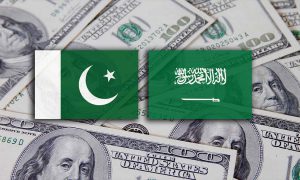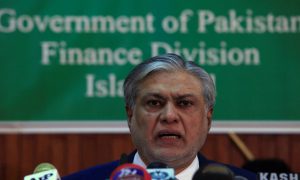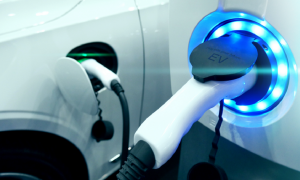“Saudi Crown Prime Mohammad bin Salman will come to Pakistan soon for $9 to $10 billion investment in oil refinery,” Prime Minister Sharif said while addressing the passing-out parade of the Specialised Training Programme (STP) batch of the National Police Academy (NPA).
A multibillion-dollar agreement between Pakistan and the Kingdom of Saudi Arabia is edging closer to being signed for an oil refinery project that has been on hold for several years. Before Prime Minister Shehbaz Sharif’s trip to Riyadh, teams from Pakistan and Saudi Arabia have been holding a series of meetings to finalize a business agreement on the project.
During a visit to Pakistan in January 2019, Saudi Arabia’s Energy Minister Khalid Al-Falih made the announcement and stated that the Arab country intended to build a $10 billion oil refinery in the country’s deep-water port of Gwadar. Nevertheless, it was abandoned due to concerns about the plan’s financial sustainability.
During the visit of the Saudi Crown Prince Mohammad bin Salman to Pakistan in February 2019, a $20 billion investment package was presented. This package included $10 billion in funding for the construction of the massive oil refinery in Gwadar.
A $3.2 billion bailout fund was later repaid due to disagreements with the Pakistan Tehreeki-Insaaf (PTI) leadership. The Kingdom also chose to abandon the massive oil refinery project as a result of this development. According to sources, the lack of a pipeline that might help carry oil from the refinery to different parts of Pakistan, which would require an additional investment of about $2 billion, was another factor in the agreement falling through.
Read more: Saudi firm to set up refinery in Gwadar to assess Reko Diq gold, copper quantity
After the coalition government entered power, Sharif made plans to hasten the construction of the energy projects Saudi Arabia had envisioned for Pakistan.
The Petroleum Division ramped up work on the new refinery policy, another project that had been on hold for a time, in response to the Arab country’s willingness to grant incentives for new refinery projects. According to sources, one of the incentives required by Saudi Arabia was a 7.5% deemed duty on patrol and high-speed diesel for the ensuing 25 years.
High-speed diesel currently has a deemed duty of 7.5 percent. Although Pakistan’s government disagreed with this demand, they did offer 10% deemed duty on petrol and high-speed diesel over the following ten years in order to build a new oil refinery there. According to sources, both parties were anticipated to complete the incentives that would be included in the new refinery policy before sending it to the Economic Coordination Committee (ECC) and the cabinet for approval.
The Pak Arab Refinery Limited (Parco), a joint venture between Pakistan and the government of the United Arab Emirates (UAE), is the second proposal on the table. It aims to establish the new Khalifa Refinery Project, a refinery with a capacity of 400,000 barrels per day.
The UAE government made the decision to build the Khalifa Refinery in Balochistan’s coastline region with a $6 billion investment. The UAE government postponed the project after a dispute with the Pakistan People’s Party (PPP) over the choice of a new managing director at Parco. The $6 billion Khalifa Coastal Refinery project, however, was approved to be renewed by the UAE government in 2016.
The UAE government, Parco, and OMV are partners in this initiative. OMV owns 10% of all the shares. According to this strategy, OMV and the UAE’s government may abandon the project, making space for Saudi Arabia to replace them.
Additionally, PSO and Parco may join forces on the project as partners. In light of this, Saudi Arabia may participate in this project rather than building a separate refinery in the oil city of Gwadar. Officials say Pakistan needs a refinery with a capacity of 400,000 barrels even though Parco, the largest oil refinery in the country, only has a daily capacity of 100,000 barrels.
Currently, Saudi Arabian crude oil exports are necessary to fulfill Parco’s demand. According to industry officials, if the current refineries’ capacity is increased to 400,000 barrels and a third refinery is built with the same capacity, the country’s fuel needs will be satisfied through the year 2040.



























